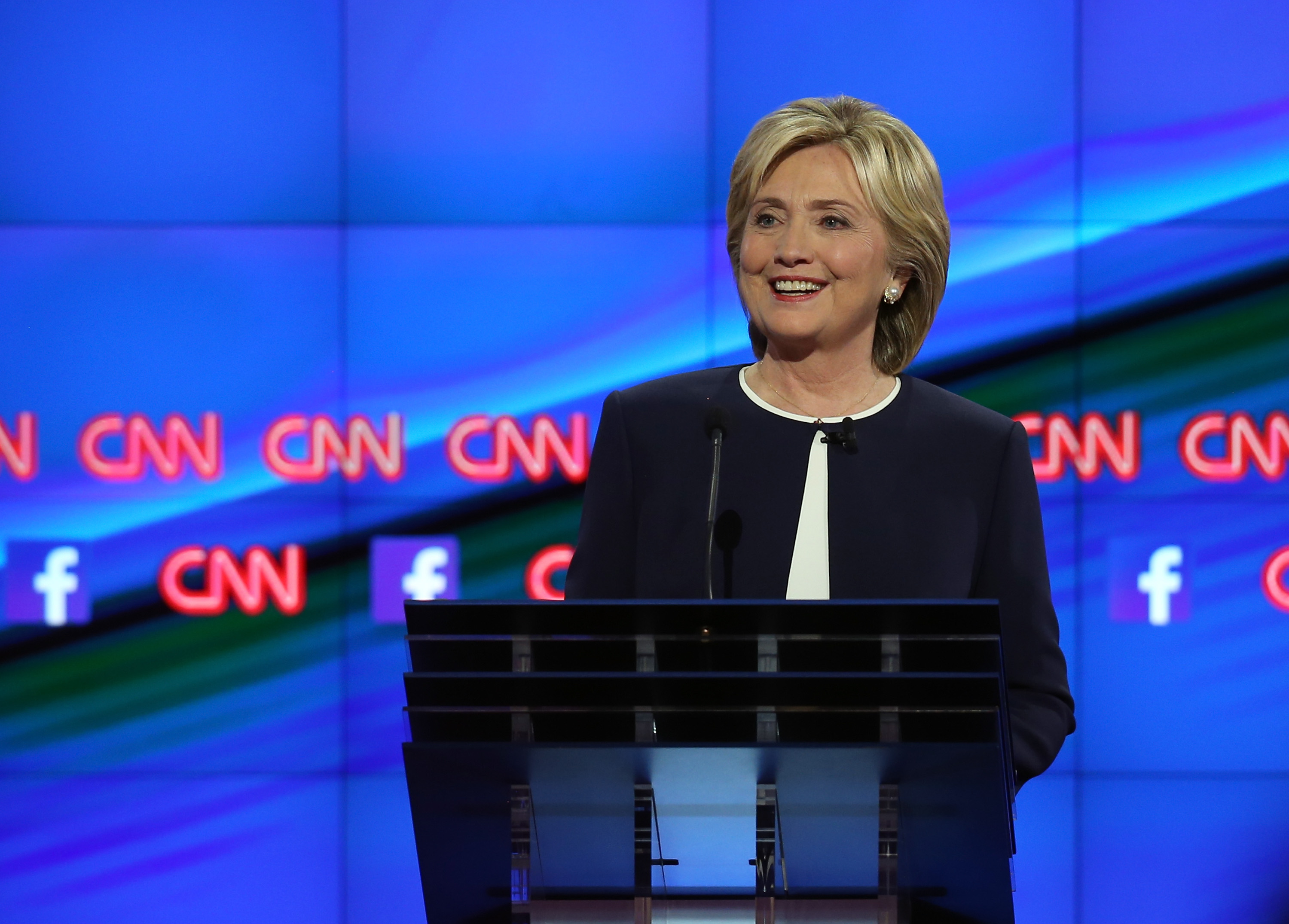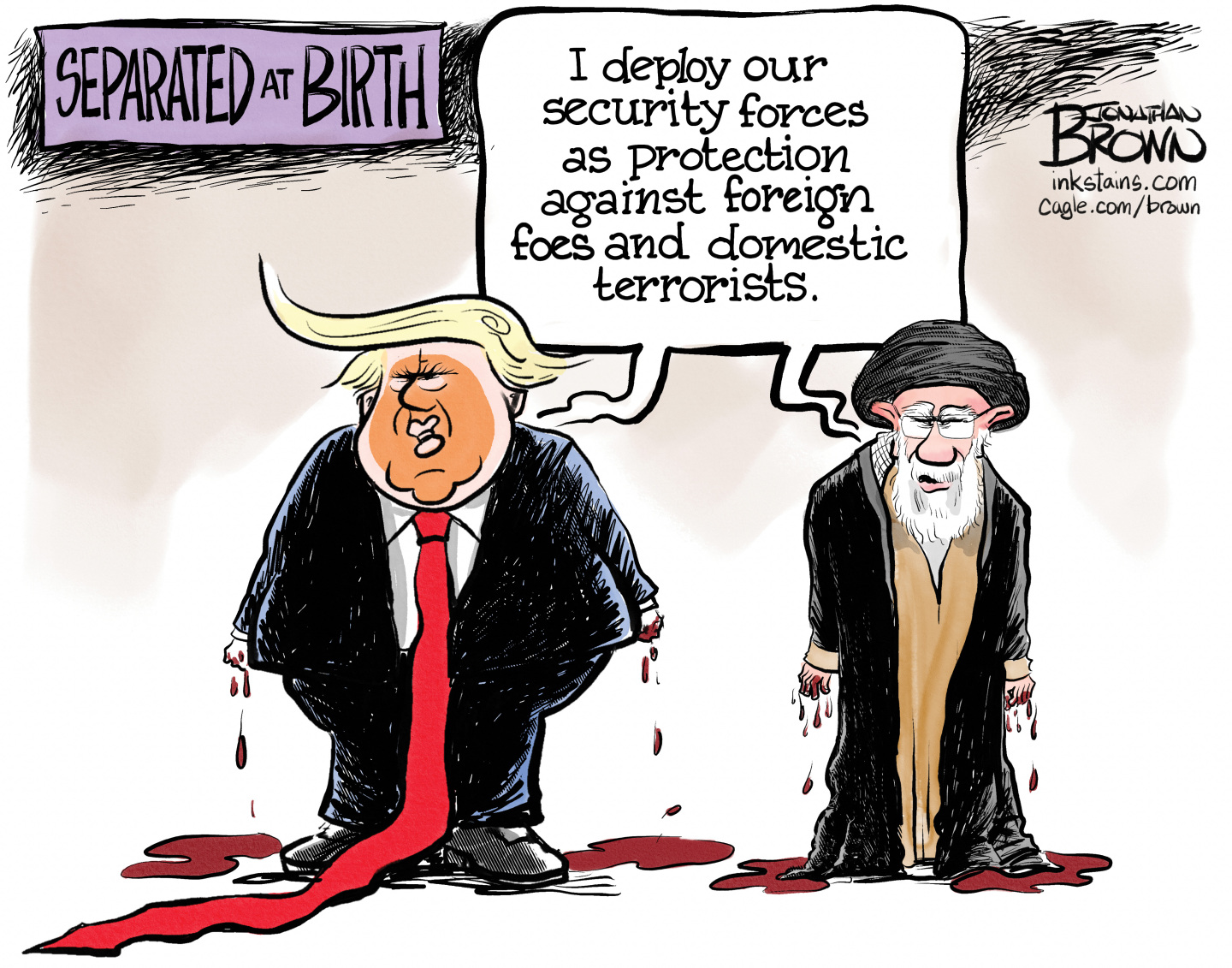How Hillary Clinton won the Democratic debate and thwarted a Joe Biden candidacy
The Democratic frontrunner had a stellar night


The first Democratic presidential debate had one casualty: a plausible reason why Vice President Joe Biden should enter the race.
That's because Hillary Clinton deftly argued that President Obama's decision to hire her as secretary of state was all that Democrats needed to know about her judgment, and that it should put to rest questions about her vote in favor of the war on Iraq and her late embrace of financial populism.
Trust Obama, she was saying, and you can trust me. The crowd at the Wynn hotel and casino in Las Vegas, at least, bought it.
The Week
Escape your echo chamber. Get the facts behind the news, plus analysis from multiple perspectives.

Sign up for The Week's Free Newsletters
From our morning news briefing to a weekly Good News Newsletter, get the best of The Week delivered directly to your inbox.
From our morning news briefing to a weekly Good News Newsletter, get the best of The Week delivered directly to your inbox.
She got a big assist from Bernie Sanders, of course, when he drew huge applause by urging everyone to forget about the "damn emails" and focus on income inequality. Clinton's favorability ratings have fallen since she left the State Department in 2013, partly because an insurgent has emerged to remind anti-establishment Democrats that they have a choice, and partly because she has seemed unsteady in response to questions about her private email server. She needed a strong performance on Tuesday to remind Democrats what they once liked about her, and she delivered.
Going forward, Clinton's donor base will be mollified. Her supporters will be ecstatic. And the rest of the party will see her as a very plausible nominee.
Where, in this mix, can Joe Biden fit? What interests would his candidacy serve, aside from his own?
Biden's candidacy only works on the theory that Clinton is hemorrhaging support, or that her status as frontrunner is shaky, or that she seems unable to articulate a message capable of defeating an emboldened, excited Republican Party in the general election. On Tuesday, her preparation and experience, set against a rather underwhelming cohort of debaters, shows that none of these three conditions is operative.
A free daily email with the biggest news stories of the day – and the best features from TheWeek.com
Clinton still has not fully fleshed out an answer to the toughest question facing her campaign: Aside from her being a Clinton and a woman, why should she be president? But she may be getting there. Fathers being able to tell their daughters that "you, too, will be able to be president," is as close as she has to a reason, and it's compelling. Sufficient? No. "I'm a progressive who likes to get things done," which she said earlier, is closer.
Sanders has drawn significant stylistic contrasts with Clinton, but the premise for his campaign is self-referential too. He spoke of the house parties his campaign was holding, and of the millions of dollars he's raised from small donors, and of the need to "raise the consciousness" of the public at large by presenting it with the facts about income inequality. Sanders' pledge to "mobilize our people to take back our country from a handful of billionaires to create a vibrant democracy" is an applause line that builds its own ceiling.
As former Sen. James Webb said to Sanders, "The revolution isn't coming."
Marc Ambinder is TheWeek.com's editor-at-large. He is the author, with D.B. Grady, of The Command and Deep State: Inside the Government Secrecy Industry. Marc is also a contributing editor for The Atlantic and GQ. Formerly, he served as White House correspondent for National Journal, chief political consultant for CBS News, and politics editor at The Atlantic. Marc is a 2001 graduate of Harvard. He is married to Michael Park, a corporate strategy consultant, and lives in Los Angeles.
-
 The rise of the spymaster: a ‘tectonic shift’ in Ukraine’s politics
The rise of the spymaster: a ‘tectonic shift’ in Ukraine’s politicsIn the Spotlight President Zelenskyy’s new chief of staff, former head of military intelligence Kyrylo Budanov, is widely viewed as a potential successor
-
 How oil tankers have been weaponised
How oil tankers have been weaponisedThe Explainer The seizure of a Russian tanker in the Atlantic last week has drawn attention to the country’s clandestine shipping network
-
 5 critical cartoons about the deadly crackdown on protesters in Iran
5 critical cartoons about the deadly crackdown on protesters in IranCartoons Artists take on twinning, booed off stage, and more
-
 The billionaires’ wealth tax: a catastrophe for California?
The billionaires’ wealth tax: a catastrophe for California?Talking Point Peter Thiel and Larry Page preparing to change state residency
-
 Bari Weiss’ ‘60 Minutes’ scandal is about more than one report
Bari Weiss’ ‘60 Minutes’ scandal is about more than one reportIN THE SPOTLIGHT By blocking an approved segment on a controversial prison holding US deportees in El Salvador, the editor-in-chief of CBS News has become the main story
-
 Has Zohran Mamdani shown the Democrats how to win again?
Has Zohran Mamdani shown the Democrats how to win again?Today’s Big Question New York City mayoral election touted as victory for left-wing populists but moderate centrist wins elsewhere present more complex path for Democratic Party
-
 Millions turn out for anti-Trump ‘No Kings’ rallies
Millions turn out for anti-Trump ‘No Kings’ ralliesSpeed Read An estimated 7 million people participated, 2 million more than at the first ‘No Kings’ protest in June
-
 Ghislaine Maxwell: angling for a Trump pardon
Ghislaine Maxwell: angling for a Trump pardonTalking Point Convicted sex trafficker's testimony could shed new light on president's links to Jeffrey Epstein
-
 The last words and final moments of 40 presidents
The last words and final moments of 40 presidentsThe Explainer Some are eloquent quotes worthy of the holders of the highest office in the nation, and others... aren't
-
 The JFK files: the truth at last?
The JFK files: the truth at last?In The Spotlight More than 64,000 previously classified documents relating the 1963 assassination of John F. Kennedy have been released by the Trump administration
-
 'Seriously, not literally': how should the world take Donald Trump?
'Seriously, not literally': how should the world take Donald Trump?Today's big question White House rhetoric and reality look likely to become increasingly blurred
